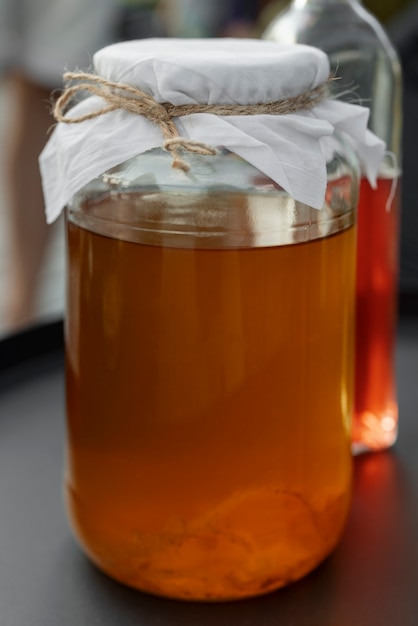
Fermented foods are popping up everywhere these days, but are they really good for you? Let’s explore this with the story of Donna Schwenk. Thirteen years ago, Donna was 41 and pregnant with her third child when she developed preeclampsia, causing severe health issues. Her baby, Holli, had to be delivered early, weighing only four pounds. Donna faced diabetes, high blood pressure, and extreme fatigue, struggling to care for her newborn.
Desperate for a solution, Donna found a book about the Body Ecology Diet and its mention of kefir, a fermented milk drink full of beneficial bacteria. Encouraged by a health store assistant, she tried adding kefir to Holli’s bottles. Remarkably, Holli gained weight, and Donna’s health started improving too. Within three months, her blood sugar and blood pressure normalized, and she felt better than she had in years. Convinced of the power of fermented foods, Donna wrote her own book and became a part of a PBS special highlighting the health benefits of foods like kefir, yogurt, and sauerkraut.
Fermented foods are experiencing a resurgence due to their potential health benefits. For instance, home fermentation advocate Michael Pollan has shared his passion for DIY fermentation, filling his kitchen with various jars and bottles of homemade ferments. Nutritionist Kimberly Snyder, who works with celebrities, advises her clients to incorporate fermented vegetables into their diet daily. She claims it helps with weight loss, skin health, and energy levels.
The gut is now recognized as central to overall health. Clinical nutritionist Kathie Swift, author of The Swift Diet, always starts with gut health in her practice. Unbalanced gut bacteria can impact various areas of health, from digestion to the immune system and even mood, as 70% of our immune system and crucial mood-regulating chemicals like serotonin are produced in the gut.
Recent studies have shown promising results when gut bacteria are balanced. For example, transferring gut bacteria from lean to obese mice caused weight loss in the latter. Similarly, changing the gut bacteria in anxious mice made them calmer.
Our gut hosts about 100 trillion bacteria, but factors like age, diet, and medication can disrupt this balance. Registered nutritional therapist Daniel O’Shaughnessy explains that too much sugar and refined carbs feed bad bacteria, causing gut health issues over time. Addressing this imbalance with good bacteria from fermented foods can alleviate various problems, including food intolerances and chronic fatigue.
While supermarket probiotic drinks often contain high sugar levels and transient bacteria, incorporating a diverse range of fermented foods can provide a broader variety of beneficial bacteria. For example, kefir, sauerkraut, and kombucha each offer different strains that contribute to overall gut health.
Fermenting foods isn’t new; it’s been part of traditional diets globally for centuries. Author Jill Ciciarelli highlights that fermented foods made nutrients more available and aided digestion due to their natural acids. From Korean kimchi to German sauerkraut, many cultures include fermented foods in their cuisine. Japan, known for its long life expectancy, regularly consumes fermented foods such as miso soup and natto.
Remember, moderation and variety are key when adding fermented foods to your diet. Overconsumption can cause digestive issues. Start with small amounts and gradually increase to avoid any discomfort. Look for products with raw, live cultures instead of pasteurized versions. If you’re up for it, making your own fermented foods at home is simple and worthwhile.
To sum up, fermented foods like kefir, miso, sauerkraut, coconut yogurt, and kombucha can offer various health benefits. They support gut health and overall well-being when included wisely and in moderation. So, give them a try and see how they can enhance your diet and health.